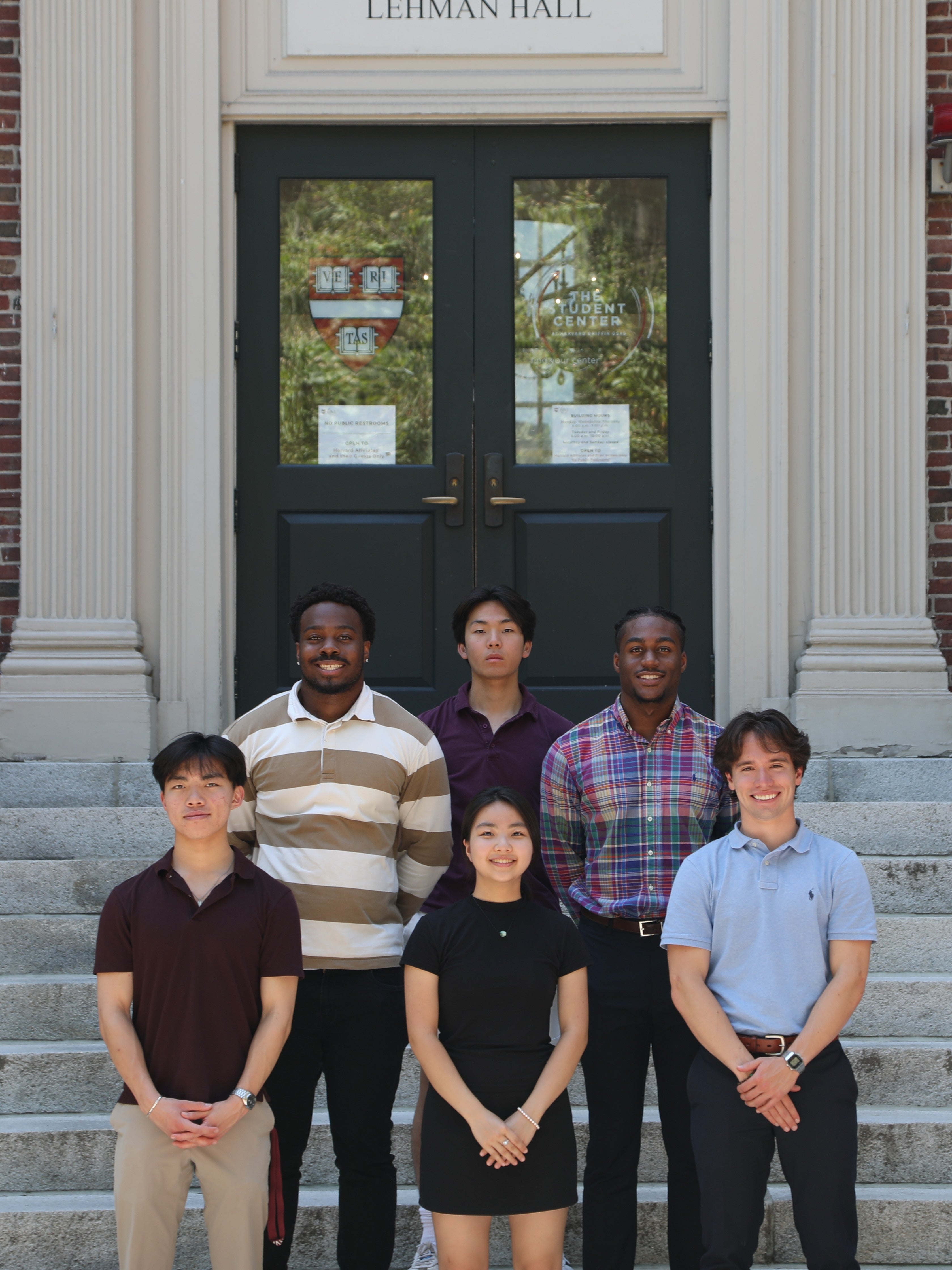This paper looks at the political awareness of Generation Z and its influence on social justice. Questioning the stereotype of wisdom being age-dependent, the research studies the unique insights and experiences of Gen Z in the realm of politics. It brings to light their active engagement in political discourse, the various factors shaping their political leanings, and their significant role in instigating societal change. The paper further emphasizes the importance of diverse voices in shaping political awareness and its implications for social justice. Relevant case studies, such as the global climate strikes led by Greta Thunberg and the Black Lives Matter movement, are explored to illustrate Generation Z's potential to drive social change through political engagement.
“Activism isn’t just actions or social media, it always starts with a passion, and people need to be in touch with that first – everyone has a voice that can turn society on its head, it’s just about feeling empowered enough to use it.,” Gen Zer Elijah Mckenzie-Jackson indicates on the BBC.
Often, Gen Z is criticized for being too attached to their devices, with older generations pushing us to engage with what they perceive as “real.” They question our understanding with comments like “how are we to know." However, wisdom, I believe, is not confined by age. It is about the experiences and insights we gather, regardless of our age. This principle applies universally, even to our political views. In this age of rapid technological advancement and social transformation, Gen Z, equipped with digital tools and a robust sense of social responsibility, is not just passively absorbing handed-down political norms. Instead, we are actively engaging, challenging, and even redefining politics. The voices of the youngest generations, like us, are becoming increasingly influential in shaping the future. This political awareness plays a pivotal role in starting societal change, from our personal choices to our stance on social justice issues.
Thus, this paper explores the question, "To what extent are the new generations aware of the significance of politics and its impact on social justice?" In this research, we’ll delve deeper into the perceptions of diplomacy among new generations, particularly Gen Z, and their understanding of its influence on social justice.
Following the discussion on the increasing political awareness of younger generations and their impact on social justice, it is crucial to understand the fundamental concepts of politics and social justice. Politics, as defined by the Merriam Webster Dictionary, is "the art or science of a government", encapsulating its essence as a discipline concerned with the operations and principles of governance. This understanding closely aligns with social justice, as defined by Oxford Languages, as "justice in terms of the distribution of wealth, opportunities, and privileges within a society." This definition accents the vital connection between fairness and equality in a society's social and economic sectors. Understanding these definitions will further highlight the distinctive view points Generation Z brings to diplomacy, and the impact of politically aware voices on social justice.
To fully grasp the situation, it's key to understand new generations, especially their views on politics and social justice. According to a survey by the Public Religion Research Institute (PRRI), Generation Z, the most diverse generation in U.S. history, is highly engaged in these areas. This generation believes in political change, particularly among Democrats, and actively participates in political activities. Despite having low trust in political institutions, Generation Z strongly supports social justice initiatives like affirmative action, student loan forgiveness, and funding for technical and political education. However, they also feel unprepared for the job market and report more experiences with hostility and discrimination, indicating a critical view of current social and political structures. Politically, Generation Z leans less towards the Republican party and more towards progressive ideas, with many not associating with either major party. This diversity could influence societal norms, but internal differences within the generation hint at complex impacts. The strong digital connectivity of our generation may also shape societal expectations for communication and political involvement.
When exploring what influences the political participation and leanings of Generation Z, many factors come to mind. According to the "The Community-Based Rehabilitation Guidelines” and “The Effects of University Education on the Political Attitudes of Young Adults” by Eric Mintz, ten factors stand out. These are education, social isolation, personal factors, stigma and discrimination, lack of role models, legal barriers, social class, income, personal outlooks, and notably, poverty. These elements collectively shape the political and social justice perspectives of our generation.
The impact of poverty on political awareness and participation is particularly evident in a study by Max Schaub. His research explores the Long Month After Short (LMAS) concept in Germany, a situation where salary payment dates differ, causing longer periods without income for the poor. Often unable to plan for these periods, the poor struggle to meet their basic needs. This study reveals a drop in voting intention between the poor by up to 5 percentage points during LMAS months, with actual turnout being 2 percentage points lower.
This finding points out that acute financial hardship can discourage the poor from political engagement, implying that poverty does indeed impede political awareness and participation. This evidence offers a important insight into how poverty can directly impact the political activity of Generation Z. It emphasizes the need to address these issues to promote broad and representative political participation.
Politics and social justice are two intertwined facets of society that have become increasingly significant the future, specifically Generation Z. We individuals are not only growing more aware of the impact of politics on social justice, but we are also engaging in active participation to drive change. According to the BBC, Edelman, a global public relations and research firm, reveals that 70% of Gen Zers are involved in a social or political cause. For instance, consider the global climate strikes led by youth activists like Greta Thunberg. This movement, mainly driven by Gen Z, has significantly influenced political debates on climate policy. Their political awareness and active engagement have resulted in increased public discussions about climate justice, demonstrating how political consciousness can directly impact social justice issues. An example of this is how Greta Thunberg's campaign, Fridays for Future (FFF), has changed consumer behavior, persuading people to reduce meat consumption and flight travel. Additionally, local FFF protests influenced political discourse on environmental policy. The campaign contributed to the electoral success of the German Green Party and boosted general support for climate protection among German citizens. Following the FFF protests, Germany's Federal Constitutional Court even ruled that the government's climate protection policies were insufficient in 2021. Similarly, the Black Lives Matter movement, which has seen substantial support and participation from Gen Z, has pushed for significant policy changes related to racial justice. These examples indicate the potential of politically aware Gen Zers to drive social change through their engagement in political causes.
Moving forward, we ventured into the political world as experienced by Generation Z, challenging old stereotypes and shedding light on the powerful influence that we, the youngest among society, bring into play. This paper explored the factors shaping Gen Z's political views, the role of technology, and the profound impact of economic conditions on political participation. Our exploration of case studies like the climate strikes led by Greta Thunberg and the Black Lives Matter movement highlighted the tangible impact of Gen Z's political engagement on social justice.
The implications of our findings are incredibly significant, not only for Gen Z but for society at large. The political awareness and activism of Gen Z are not merely passing trends but core elements of our generation's identity. We are challenging, refining, and redefining our societal norms, pushing us towards a more just future.
Just like the wise Mahatmi Ghandi once said, “Be the change you wish to see in the world.” I encourage you, regardless of your age, side, or generation, to please engage with and amplify our youthful voices. Let's foster a society where every voice counts, every opinion matters, and where wisdom is not bound by age. Our research has merely scratched the surface, and there's so much more to explore. So, I urge you to keep questioning, keep learning, and most importantly, keep making a positive impact on the world which surrounds you. The future is in our hands, and together, we can shape it for the better.
Works Cited
American Council of Trustees and Alumni. “Gen Z Is Anything But Politically Ill-Informed.” American Council of Trustees and Alumni, 7 April 2021, www.goacta.org/news-item/gen-z-is-anything-but-politically-ill-informed/. Accessed 9 June 2024.
BBC. “Greta Thunberg: Who is the climate activist and what has she achieved?” BBC, 9 May 2024, www.bbc.com/news/world-europe-49918719. Accessed 15 June 2024.
Carnegie, Megan. “Gen Z: How young people are changing activism.” BBC, 8 August 2022, www.bbc.com/worklife/article/20220803-gen-z-how-young-people-are-changing-activism. Accessed 15 June 2024.
“47th Edition - Spring 2024.” Harvard IOP, 18 April 2024, iop.harvard.edu/youth-poll/47th-edition-spring-2024. Accessed 4 June 2024.
Mintz, Eric. “The Effects of University Education on the Political Attitudes of Young Adults.” Canadian Journal of Higher Education, vol. 28, no. 1, 1998, pp. 21-40, files.eric.ed.gov/fulltext/EJ565304.pdf. Accessed 19 June 2024.
“Political participation - Community-Based Rehabilitation: CBR Guidelines.” NCBI, www.ncbi.nlm.nih.gov/books/NBK310967/. Accessed 14 June 2024.
“PRRI.” PRRI, 22 January 2024, www.prri.org/research/generation-zs-views-on-generational-change-and-the-challenges-and-opportunities-ahead-a-political-and-cultural-glimpse-into-americas-future/. Accessed 13 June 2024.
“PRRI.” PRRI, 23 January 2024, www.prri.org/press-release/survey-generational-change-in-political-leadership-necessary-to-solve-countrys-problems-according-to-generation-z-2/. Accessed 14 June 2024.
Schaub, Max. “Acute Financial Hardship and Voter Turnout: Theory and Evidence from the Sequence of Bank Working Days.” American Political Science Review, vol. 115, no. 4, 2021, pp. 1-17, www.cambridge.org/core/journals/american-political-science-review/article/acute-financial-hardship-and-voter-turnout-theory-and-evidence-from-the-sequence-of-bank-working-days/5B5A872CA63098D5B6A3FCC53B9B6C29. Accessed 19 June 2024.
Siebler, Carina, et al. “Five years of 'Fridays for Future': what future now?” Social Europe, 5 September 2023, www.socialeurope.eu/five-years-of-fridays-for-future-what-future-now. Accessed 15 June 2024.
Simama, Jabari. “The Issues That Motivate Gen Z Voters.” Governing, 8 April 2024, www.governing.com/politics/the-issues-that-motivate-gen-z-voters. Accessed 9 June 2024.
Soken, Emmaline. “10 Reasons Why Social Justice Is Important.” Human Rights Careers, www.humanrightscareers.com/issues/10-reasons-why-social-justice-is-important/. Accessed 12 June 2024.





